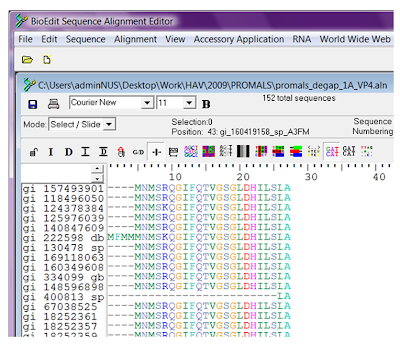
Bioinformatics therefore focus on the organization of facts and data, the synthesis of this information to develop bodies of knowledge, and finally, the evaluation and assessment of facts or data in order to formulate pertinent theories and strategies in addressing biological concerns across multiple disciplines. (Ramsden, 2004) Moreover, through services provided by Bioinformatics, it allows scientists to organize and synthesize information meaningfully for rational and relevant evaluations and assessments of facts in order to arrive at substantial results that lead to the formation of sound conclusions and generalizations. With the development of Bioinformatics, scientists, particularly molecular biologists and geneticists, have founded an efficient way to create a database of pertinent information obtained under the application of Molecular Biology since its inception, wherein facts and data gathered may be stored and organized for future access or retrieval. Through the fusion of technology, particularly Information Technology or IT, Computer Science, Statistics, and Molecular Biology, Bioinformatics came about addressing problems that challenged the informational system of Biology. Since molecular and biological information covers a vast scope, (Bommarius & Riebel, 2004) and information obtained requires meaningful, factual, and systematic observations, interpretations, analyses, and synthesis, the necessity for developing a tool or a system to manage the various processes involved, such as the information-gathering, the storage and retrieval of data, the management of data, and so on, (Ramsden, 2004) was realized.

One should not expect that gathering information from various life forms is a trouble-free task. However, positioning the theoretical framework of Molecular Biology into practical environments and realizing its purpose of obtaining information to contribute to various fields and industries have never been easy. The next step constitutes the synthesis and organization of information in order to develop theoretical approaches and practical strategies for problem-solving purposes.

(Hyman, 2003) The process of resolving these multiple issues that affect almost all major fields or industries start by focusing attention on gathering and analyzing information which may be initially categorized under Molecular Biology, and then subsequently, Genetics. Not only does it contribute to the field of Molecular Biology or Genetics for instance, but the processes of obtaining pertinent and comprehensive data are advantageous in addressing concerns in various fields, including Health Care and Medicine, Farming, Agriculture and environmental concerns, Nutrition, Food Processing and Production, and so on. (Ramsden, 2004) Aside from the purpose of collating reliable and valid information to provide man with an open access to facts or data for the purpose of cognitive enlightenment and sustenance of psychological needs, and so on, solving various issues and problems confronting man and other species on earth may also be addressed through the information-gathering process.


Under these pretexts, the importance of information is framed pertaining to its connection with the field of biology, specifically under the framework of Molecular Biology, Genetics, Computer Science, IT, and Statistics. Order custom essay Bioinformatics: BioEdit


 0 kommentar(er)
0 kommentar(er)
